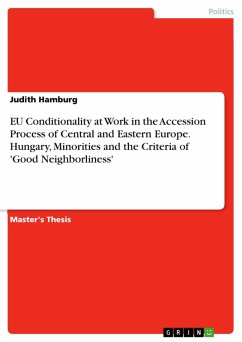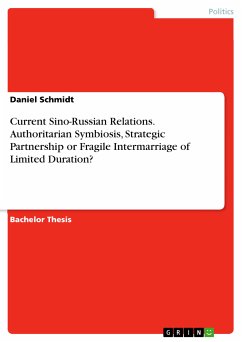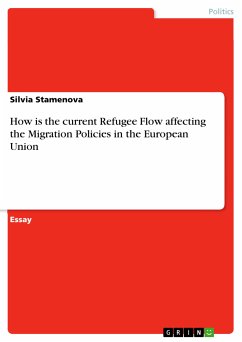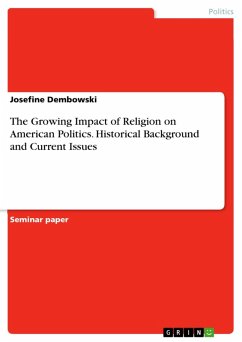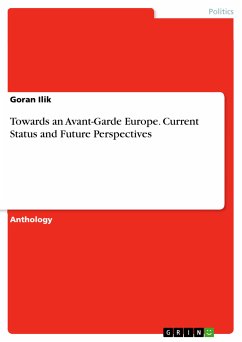
Towards an Avant-Garde Europe. Current Status and Future Perspectives (eBook, PDF)

PAYBACK Punkte
0 °P sammeln!
Anthology from the year 2017 in the subject Politics - International Politics - Topic: European Union, , language: English, abstract: The first chapter is a qualitative analysis of the Lisbon Treaty and its institutional and political implications for the international political identity of the European Union as a global actor. With the integration of the EU's foreign policy capacities and the fusion of the (former) three pillars, the Lisbon Treaty makes some sort of rationalization of the institutions in terms of providing efficient and simplified decision-making, suitable for implementing a ...
Anthology from the year 2017 in the subject Politics - International Politics - Topic: European Union, , language: English, abstract: The first chapter is a qualitative analysis of the Lisbon Treaty and its institutional and political implications for the international political identity of the European Union as a global actor. With the integration of the EU's foreign policy capacities and the fusion of the (former) three pillars, the Lisbon Treaty makes some sort of rationalization of the institutions in terms of providing efficient and simplified decision-making, suitable for implementing a coherent foreign policy. This chapter concludes that the Lisbon Treaty does not represent a finalité politique of the EU integration process, but just a step towards its achievement. The second chapter analyses the main determinants that can affect the functioning of the European Union as one of the key global players in the contemporary world. Being a unique and highly specific international actor, the EU is a major power in terms of economic potential and the attractiveness of its social and cultural model, but it is also a dwarf in the sphere of foreign and security policy. The third chapter suggests an answer to the question of national identity and belonging to nation-states in an avant-garde Europe. In other words, it examines: what might the avant-garde of national identity in Europe in the XXI century be; will nationalities and simple belonging to nation-states be sufficient for Europeans; what is the vitality and the potential of pan-European identity to fill the gaps of national identity; and how the two strains of belonging relate to each other. The fourth chapter describes how judicial bodies through their case law shaped and modeled the federal structures of government in the cases of the United States and the European Union. Through initially laying out the theoretical explanations of the significance of constitutional (judicial) review in federal structures, and elaborating on the powers and position of the Supreme Court in the United States and the Court of Justice in the European Union, the author seeks to show how these bodies influenced, in similar ways, some of the key features of these two federal organizations. The fifth chapter argues about Europe, which as a continent has throughout its history been one of the most popular destinations for migrants and foreigners who have viewed the Old continent as a place of better social and economic possibilities. The migrant crisis has thus become a real litmus test for the EU coherence and unity.
Dieser Download kann aus rechtlichen Gründen nur mit Rechnungsadresse in A, B, BG, CY, CZ, D, DK, EW, E, FIN, F, GR, HR, H, IRL, I, LT, L, LR, M, NL, PL, P, R, S, SLO, SK ausgeliefert werden.








